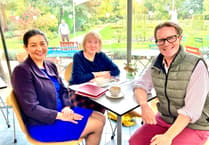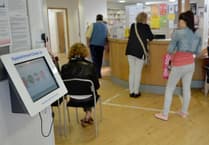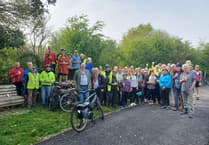Brexit and its implications for the broader B&NES community was the theme of last Thursday night’s debate at Midsomer Norton Town Hall, organised by Bath for Europe and Leave2Remain.
The two non-party political groups are staunchly pro-Remain, but the event was conceived to bring both Leavers and Remainers together to talk about issues that matter to them. In his opening statement, Chairman, Peter Andrews, said: “The referendum vote was one of the most divisive issues; splitting communities and families, but eventually we’ll have to live and work together in the same place.”
Peter emphasised the importance of being tolerant of others’ views, which set the tone for the debate.
Seven members of the local community formed a ‘Question Time’ panel that represented sectors including business, farming, the law and non-UK/EU residents, who began with a brief introduction about what Brexit would mean to them.
Musician and producer, Tim Hegarty, one of the major Leave campaigners in the South West, considered the Brexit vote reflected the elite’s lack of concern for working class British people and urged Remainers to respect the referendum result. Claire Thomas, Chair of Bath for Europe, brought in her professional expertise in construction, an industry just getting back on its feet after the recession, that was now seeing redundancies and cancelled contracts. The view that business would suffer once Brexit kicked in was echoed by other members of the panel with experience in retail, who saw their livelihoods threatened with sales plummeting and costs up, reinforced by news of major chains such as New Look and Next facing major losses.
The economy is a tricky subject, and one Leaver in the audience disagreed it was suffering, citing a sudden peak in the FTSE. This was challenged as being a natural consequence of the low pound. Former UKIP candidate, Ernie Blaber, asked if mass-migration had affected house prices, which opened the debate into a discussion as to whether successive governments had planned properly by building the right infrastructure to cope with an influx. The idea there had been uncontrolled immigration from the EU was also challenged as a myth, and it was pointed out that ‘Brexodus’ of foreign doctors, nurses and care workers would place an additional burden on the NHS. Panellist, David Banwell, a local farmer, gave the example of Shepton Mallet community hospital having to close an inpatient unit temporarily because of a shortage of nurses.
“I fell in love with Britain”, said panellist, Veronique Martin, when she came over from France in 1984 as part of the first wave of Erasmus students. She said now, like many EU nationals, she did not now feel so welcome, but added: “We are all people with similar dreams and fears and wish the best for Britain.”
With so many strong views, it was unlikely there would be consensus, but Remainers and Leavers did listen to the views of others and enjoyed the social atmosphere of Midsomer Norton Town Hall’s Assembly Room in sharing a drink afterwards.




